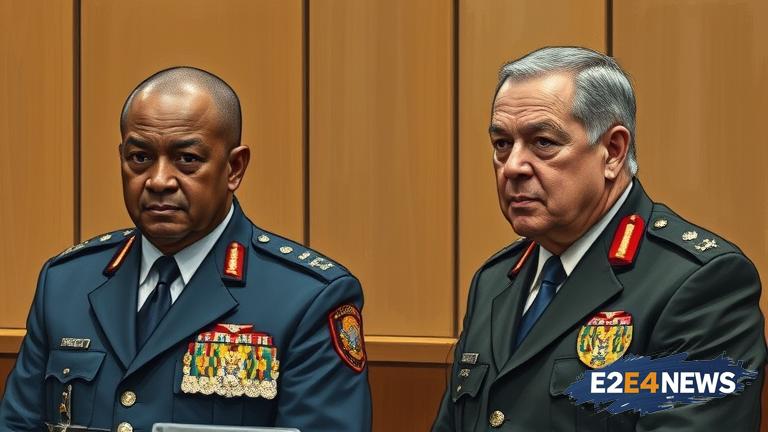In a significant development, Fiji’s top police officials, including Commissioner Sitiveni Qiliho and former Prime Minister Voreqe Bainimarama, have appeared in court to face trial. The trial, which is being closely watched by the public and the media, is related to allegations of abuse of office and misconduct. The accused officials are facing charges of allegedly using their positions for personal gain and to harass and intimidate opponents. The case has sparked widespread interest and debate, with many calling for greater accountability and transparency in the government and police force. The trial is expected to be a lengthy and complex one, with multiple witnesses and evidence being presented. The prosecution is expected to argue that the accused officials used their powers to silence critics and opponents, and to cover up their own wrongdoing. The defense, on the other hand, is expected to argue that the allegations are baseless and motivated by political vendettas. The case has significant implications for the rule of law and democracy in Fiji, and is being closely watched by international observers. The trial is also expected to shed light on the inner workings of the police force and the government, and to reveal any potential corruption or abuse of power. The accused officials have denied any wrongdoing, and have maintained that they are innocent until proven guilty. The court has warned against any speculation or commentary that could prejudice the trial, and has urged the public to respect the legal process. The trial is a significant test of the independence and impartiality of the judiciary, and is expected to have far-reaching consequences for the country. The government has assured the public that it will cooperate fully with the trial, and that it is committed to upholding the rule of law. The opposition, on the other hand, has called for greater transparency and accountability, and has urged the government to take concrete steps to address the allegations. The trial is also expected to have significant implications for the police force, and could lead to reforms and changes in the way that the force is managed and overseen. The public is eagerly awaiting the outcome of the trial, and is hoping that justice will be served. The trial is a reminder that no one is above the law, and that those in positions of power must be held accountable for their actions. The case has sparked a national conversation about the importance of accountability, transparency, and the rule of law, and is expected to have a lasting impact on the country. The trial is ongoing, and is expected to continue for several weeks or even months. The court has urged the public to be patient and to allow the legal process to run its course. The accused officials are expected to face rigorous questioning and scrutiny, and the prosecution is expected to present a strong case. The defense, on the other hand, is expected to present a robust defense, and to challenge the allegations made against their clients. The trial is a significant moment in Fiji’s history, and is expected to have far-reaching consequences for the country and its people.





